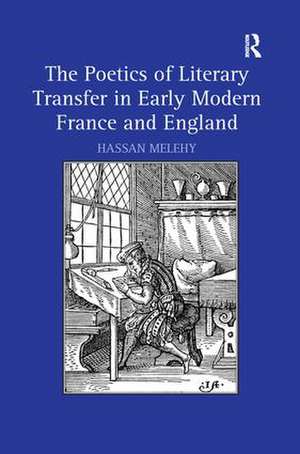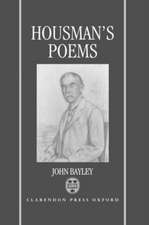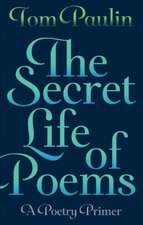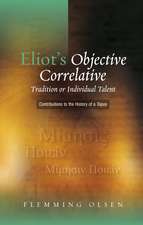The Poetics of Literary Transfer in Early Modern France and England
Autor Hassan Melehyen Limba Engleză Hardback – 28 sep 2010
| Toate formatele și edițiile | Preț | Express |
|---|---|---|
| Paperback (1) | 261.64 lei 6-8 săpt. | |
| Taylor & Francis – 31 mai 2023 | 261.64 lei 6-8 săpt. | |
| Hardback (1) | 1062.62 lei 6-8 săpt. | |
| Taylor & Francis – 28 sep 2010 | 1062.62 lei 6-8 săpt. |
Preț: 1062.62 lei
Preț vechi: 1295.88 lei
-18% Nou
Puncte Express: 1594
Preț estimativ în valută:
203.38€ • 211.53$ • 170.44£
203.38€ • 211.53$ • 170.44£
Carte tipărită la comandă
Livrare economică 13-27 martie
Preluare comenzi: 021 569.72.76
Specificații
ISBN-13: 9780754664451
ISBN-10: 0754664457
Pagini: 290
Dimensiuni: 156 x 234 x 18 mm
Greutate: 0.68 kg
Ediția:1
Editura: Taylor & Francis
Colecția Routledge
Locul publicării:Oxford, United Kingdom
ISBN-10: 0754664457
Pagini: 290
Dimensiuni: 156 x 234 x 18 mm
Greutate: 0.68 kg
Ediția:1
Editura: Taylor & Francis
Colecția Routledge
Locul publicării:Oxford, United Kingdom
Public țintă
GeneralCuprins
Contents: Introduction; Part 1 Du Bellay: Defending the space of early modern culture; Time in Rome; A dream language. Part 2 Spenser: Translation, imitation, ruin; Visions of Spenser; Antiquities of Britain. Part 3 Montaigne: Institutional authority; The words of vanity; America, the end of Western dreaming. Part 4 Shakespeare: The Sonnets and time; Old and new Roman times; The representation of the other; Works cited; Index.
Notă biografică
Hassan Melehy teaches in the Department of Romance Languages at the University of North Carolina at Chapel Hill. He has published widely on early modern literature and philosophy, critical theory, and cinema studies.
Recenzii
'Hassan Melehy's brilliant and innovative The Poetics of Literary Transfer in Early Modern France and England is the first to offer precise accounts of the literary relationships between four Renaissance authors: Du Bellay, Spenser, Montaigne, and Shakespeare. Staging their ongoing discussion on the subject of Rome and its legacy, this fascinating book brings to light a myriad of textual engagements and intertextual moments. Melehy's sensitive and erudite readings revivify the humanist ideals of friendship and dialogue, recasting them as inspiring and galvanzing "mutual regards and intermeshings".' Deanne Williams, York University, Canada 'In The Poetics of Literary Transfer in Early Modern France and England, Hassan Melehy moves through subtle readings of Joachim Du Bellay, Spenser, Montaigne, and Shakespeare toward some of the most profound reflections on literary transmission since Thomas Greene’s The Light in Troy (1982). Whereas Greene’s early modern poets experienced pathos in their descent from an ever-receding Roman origin, Melehy’s poets find in it a liberating energeia.' John Watkins, Recent Studies in the English Renaissance, Studies in English Literature '... the volume is written in an elegant prose and is detail-oriented as well as erudite. It will assuredly be read with both pleasure and profit.' Renaissance Quarterly 'It is difficult to do justice to the density of the arguments in this rich and suggestive volume, in a short review. There is actually enough material for several books. ...The Poetics of Literary Transfer makes a significant contribution to the fields of early modern comparative literature and theory.' Sixteenth Century Journal ’The intricate and careful readings frequently tease out phonetic, etyÂmological, religious, and historical details that greatly enrich the understanding of these early modern texts.’ Early Modern Literary Studies ’This deeply intelligent book arrived at a fortuitous time, when interest in
Descriere
Examining both familiar and underappreciated early modern texts, Hassan Melehy foregrounds the relationships that four writers - Joachim Du Bellay, Edmund Spenser, Michel de Montaigne, and William Shakespeare - conceived with both their classical and modern predecessors. Melehy sheds new light on pertinent issues in early modern studies, including translation, the relationship between classicism and writing in the vernacular, attitudes toward colonial expansion and the "New World," and definitions of modernity and the past.









